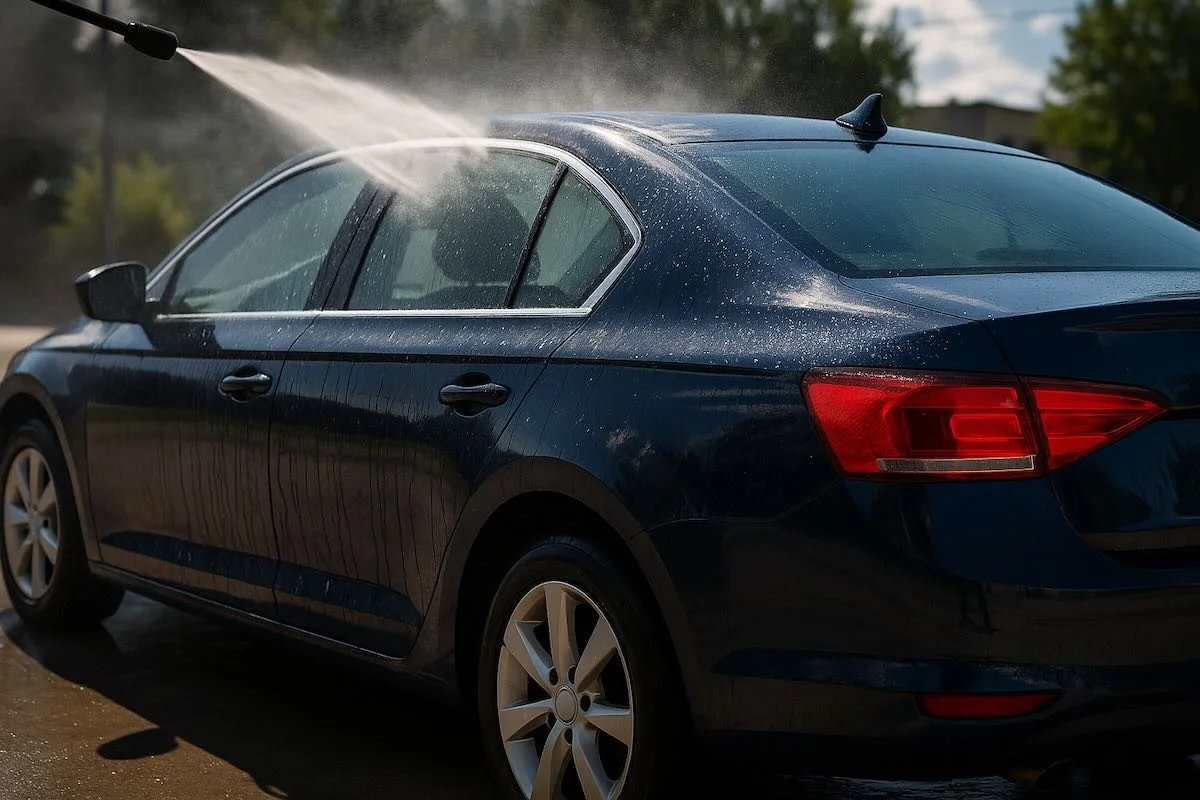How Clean Does Your Car Have to Be to Ship?
If you’re planning to ship your car—whether it’s for a cross-country relocation, an overseas move, or a Permanent Change of Station (PCS) military move—you might be wondering: how clean does your car need to be before transport?
The answer matters more than most people realize. Auto transport companies, military shipping programs, and international customs all have requirements about vehicle cleanliness that can affect insurance coverage, inspection accuracy, and even whether your car is accepted for shipment.
This guide covers why a clean car is essential, how clean it actually needs to be, and the extra steps military families should take before shipping.
Why Vehicle Cleanliness Is Important for Shipping
Accurate Vehicle Inspection
Every auto transport begins with a detailed inspection. A clean car ensures the carrier can document scratches, dents, or paint chips properly. If your vehicle is covered in dirt, damage could be missed, making insurance claims harder.Regulatory Compliance
Domestic moves: A standard wash is enough for inspections.
Overseas shipping: Customs requires vehicles to be free of soil, plants, and pests. Cars with mud in the undercarriage can be denied entry.
Military PCS shipments: The Department of Defense (DoD) and its contracted Vehicle Processing Centers (VPCs) require vehicles to be professionally cleaned, including the undercarriage, before acceptance.
Military Standards
For service members moving under a PCS order, cars must pass a strict inspection process. A dirty vehicle can cause delays or even rejection at the VPC.
How Clean Should the Exterior Be?
Civilian auto transport: Clean enough for a clear inspection. A basic car wash that removes dirt, dust, and road grime is sufficient.
Overseas shipping: Pay special attention to wheel wells, undercarriage, and bumpers where soil builds up. Customs often require a full wash or steam clean.
Military PCS shipping: Vehicles must be free of dirt, mud, and debris inside and out. Undercarriage cleaning is mandatory. Most families get a professional wash or detailing before heading to the VPC.
Interior Cleaning Requirements
Remove personal items. Civilian shippers prohibit belongings inside the vehicle, and for military PCS moves, it’s strictly enforced.
Vacuum interior. This ensures no dirt, seeds, or plant material remains—important for both customs and VPC inspections.
Remove accessories. Phone holders, dash cams, and garage openers should be taken out to avoid damage or loss.
Military-specific: Ensure no flammable items, cleaning supplies, or unauthorized equipment are left in the car.
PCS Military Move Car Shipping Checklist
If you’re a service member preparing for a PCS, here’s what you’ll need before dropping off your car at the Vehicle Processing Center:
✅ Professional exterior and undercarriage wash (keep your receipt as proof).
✅ No personal belongings inside the car.
✅ Interior vacuumed and wiped down.
✅ Fuel tank at ¼ or less.
✅ Remove toll passes, garage remotes, and aftermarket accessories.
✅ Take dated photos of your clean vehicle for records.
Tips for Civilian Auto Shipping
Even if you’re not military, following some of these steps will make shipping smoother:
Wash the exterior for visibility.
Remove personal belongings to comply with carrier policies.
Document condition with photos.
Leave about a quarter tank of fuel.
Check for leaks—cleanliness makes spotting issues easier.
Final Takeaway
Your car doesn’t need to be showroom-ready, but it does need to be clean enough for inspection and regulation compliance. For domestic shipping, a basic wash is usually fine. For overseas or military PCS moves, expect much stricter standards—especially around the undercarriage and interior cleanliness.
By preparing your car properly, you’ll avoid costly delays, pass inspections the first time, and ensure your vehicle arrives safely at its new destination.

